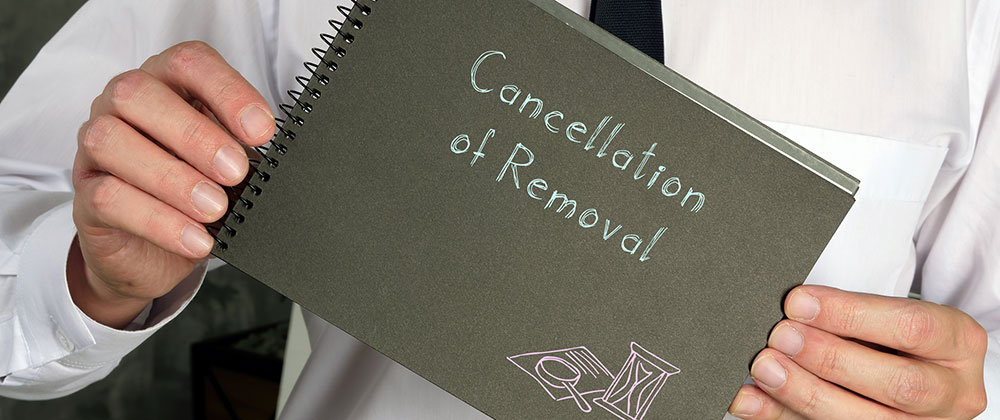Important Information from a Miami Cancellation of Removal Lawyer
Non-permanent residents and lawful permanent residents who violate the terms of their green cards or visas in Miami, Florida might be subject to removal proceedings and be potentially deported from the U.S. However, it is possible for some immigrants to secure a cancellation of removal when they meet certain requirements. A recent U.S. Supreme Court decision might impact whether some lawful permanent residents and undocumented immigrants might be eligible for cancellations of removal based on the stop-time rule. A Miami cancellation of removal lawyer at Pozo Goodstein can review your case and determine whether you might be eligible for cancellation of removal.
What Are Grounds for Cancellation of Removal?
Under 8 U.S.C. § 1229b, a non-permanent resident can apply for cancellation of removal if he or she meets the following requirements:
- The undocumented immigrant has been continuously physically present in the U.S. for 10 or more years before the application.
- He or she has demonstrated a good moral character during that period.
- He or she has not been convicted of a disqualifying offense.
- He or she can show that his or her removal would result in extreme and undue hardship to his or her U.S. citizen or lawful permanent resident spouse or child.
A lawful permanent resident can apply for a cancellation of removal if he or she meets the following requirements:
- He or she has been a lawful permanent resident for at least five years.
- He or she has continuously resided in the U.S. after being admitted under any status.
- He or she has not been convicted of an aggravated felony.
Under the stop-time rule, the continuous residence period can be stopped when the non-permanent immigrant or lawful permanent resident is sent a Notice to Appear that meets the statutory requirements. However, the U.S. Supreme Court’s decision in Niz-Chavez v. Garland, 141 S.Ct. 1474 (2021) potentially impacts how the stop-time rule applies in certain cases.
Niz-Chavez v. Garland Decision
In Niz-Chavez v. Garland, the Supreme Court found that the stop-time rule is used to determine whether a non-permanent or lawful permanent resident who is scheduled for removal proceedings will only be triggered if the Department of Homeland Security served the immigrant with one Notice to Appear containing all of the information required by statute, including the date, place, and time of the hearing in the immigration court. In a previous case in 2018, the Supreme Court ruled that a Notice to Appear that did not include information about the date, place, or time of an immigration hearing did not trigger the stop-time rule for calculating continuous residence in the U.S.
The Board of Immigration Appeals subsequently ruled in 2019 that while the defective Notice to Appear in the previous decision did not stop time for calculating continuous residence, the government could correct the issue by sending a new hearing notice with the missing information included to stop time for purposes of cancellation of removal. However, in Niz-Chavez, the Supreme Court held that the government could not cure a defective Notice to Appear by sending several documents over time because of the use of “a” in the statutory language referring to a Notice to Appear.
The Supreme Court’s decision invalidated the ruling of the Board of Immigration that the second notice of a hearing following a defective Notice to Appear stops time. This means that a non-permanent resident or a lawful permanent resident might still meet the continuous residence or presence rule for purposes of cancellation unless the Notice to Appear for removal proceedings included all of the statutorily required information, including a notice of the date, place, and time of the hearing. A hearing notice sent to the resident after a defective Notice to Appear will not stop the clock.
The decision in Niz-Chavez might also affect other types of cases involving a Notice to Appear sent by the Department of Homeland Security. For example, the court’s reasoning could potentially apply to when an immigration judge might be allowed to proceed against a lawful permanent resident or non-permanent resident who fails to appear and whether the 10-year bar might apply when a non-permanent resident or lawful permanent resident failed to appear at a removal hearing. A Miami immigration lawyer might be able to successfully argue in those types of situations that the judge cannot proceed in absentia or that the 10-year bar to certain types of relief does not apply if the Notice to Appear for these types of cases did not include the statutorily required information.
Why Non-Permanent or Lawful Permanent Residents Might Face Removal Proceedings
There are many different things that can trigger deportation and removal proceedings, including the following:
- Overstaying a tourist or nonimmigrant visa
- Violating a provision of the immigration law
- Violating a term of a visa
- Being convicted of certain crimes
- Violating the current status
- Engaging in employment without authorization
- Entering or re-entering the U.S. illegally
People who receive a Notice to Appear for removal proceedings for any of these or other reasons can still defend against the allegations against them, and some might be eligible to apply for cancellation of removal.
Defending Against Removal
Before an immigrant can be removed from the U.S., the government has the burden of proving that there is a valid reason for deporting him or her. If the non-permanent resident or lawful permanent resident has met the continuous residence and other requirements before receiving the Notice to Appear, he or she might apply for cancellation of removal. If the Notice to Appear does not include all of the required information, he or she might still be eligible to apply for cancellation of removal once the continuous residence requirements for his or her status have been met.
Get Help from a Miami Cancellation of Removal Lawyer at Pozo Goldstein
If you have received a Notice to Appear for removal proceedings, it is important for you to retain an experienced Miami immigration lawyer as soon as possible. Pozo Goldstein is comprised of a team of highly experienced immigration attorneys, including former immigration prosecutors and a former immigration judge. Contact us today to request a consultation by calling (305) 856-0400.




